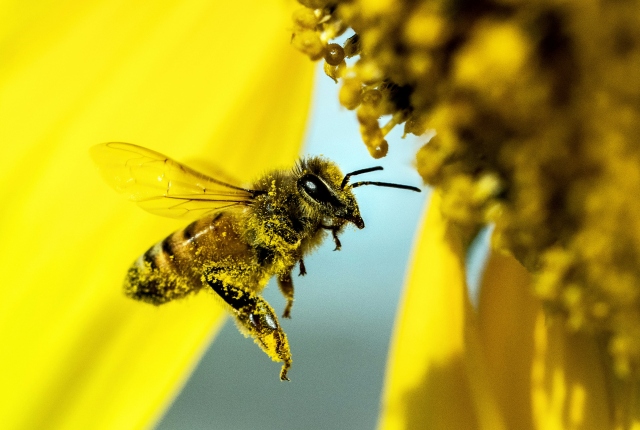Beyond Insecticides: Substances Threatening Bees

On World Bee Day, celebrated every year on 20 May, the UN reminds us of the crucial role of pollinating insects for global biodiversity, as well as for our ability to produce food naturally. Wasps, butterflies, moths, flies, and bees are currently threatened by pollution and climate change, and the University of Bologna is at the forefront of their defense.
POLYPOLL is a new PRIN project funded by PNRR funds, which analyses, with an interdisciplinary approach, the effects of combined exposure to chemical contaminants on pollinating insects.
Today, 40% of pollinator species are at risk of extinction, a decline partly due to exposure to pesticides and other chemical pollutants. While ecotoxicological research has primarily focused on insecticides, other categories of plant protection products and environmental contaminants, such as fungicides, herbicides, heavy metals, and veterinary drugs, have been less studied until now.
POLYPOLL aims to fill this gap by investigating the combined effects of different chemical contaminants on three different species: the honeybee (Apis mellifera), a solitary bee (Osmia bicornis), and a hoverfly (Eristalis tenax).
“With this project, we want to provide a solid scientific basis for a more comprehensive and accurate environmental risk assessment, contributing to making agricultural ecosystems more sustainable and favourable to pollinators” - explains Fabio Sgolastra, Professor of General and Applied Entomology at the Department of Agricultural and Food Sciences of the University of Bologna and scientific coordinator of the project.
The researchers will assess the synergistic effect of different chemical mixtures used, analyse the impacts on survival, gut microbiome, and potential sub-lethal toxicological effects. They will also work on identifying key biomarkers and developing interpretative statistical models.
Through multi-biochemical analysis and cellular biomarkers, POLYPOLL aims to provide an in-depth understanding of the molecular mechanisms involved in pollinators' response to chemical stress and to develop tools for early assessment of their health.






